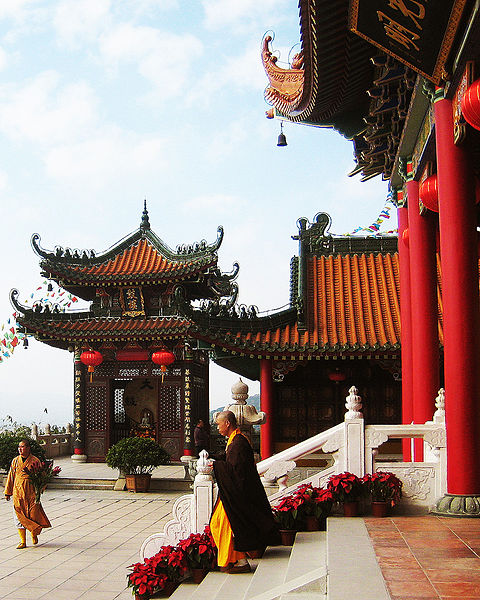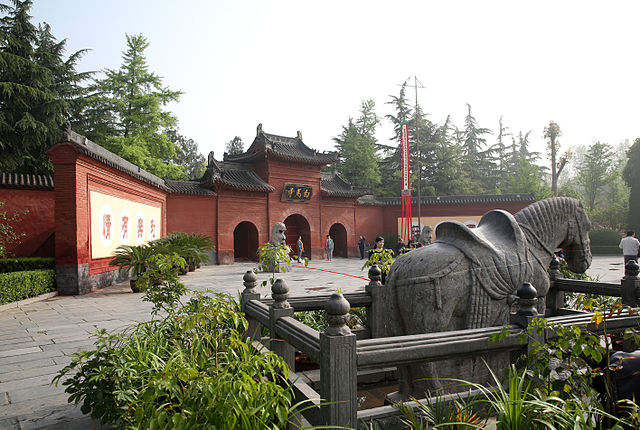Fo Guang Shan (FGS) (Chinese: 佛光山; pinyin: Fó guāng shān; lit. 'Buddha's Light Mountain') is an international Chinese Mahāyāna Buddhist organization and monastic order based in Taiwan that practices Humanistic Buddhism whose roots are traced to the Linji school of Chan Buddhism. The headquarters, Fo Guang Shan Monastery, is located in Dashu District, Kaohsiung, and is the largest Buddhist monastery in Taiwan. The organization is also one of the largest charity organizations in Taiwan. The organization's counterpart for laypeople is known as the Buddha's Light International Association.
Fo Guang Shan's Sutra Repository, the home of the Institute of Humanistic Buddhism and library of over 50 editions of Buddhist canons.
Fo Guang Shan Buddha Museum
Buddha statues in the main shrine of Fo Guang Shan
Main entrance to the Fo Guang Shan monastery. Seen also is the BLIA logo, a statue of Maitreya, and the statue of Amitabha in far right.
Chinese Buddhism or Han Buddhism is a Chinese form of Mahayana Buddhism which draws on the Chinese Buddhist canon as well as numerous Chinese traditions. Chinese Buddhism focuses on studying Mahayana sutras and Mahāyāna treatises and draws its main doctrines from these sources. Some of the most important scriptures in Chinese Buddhism include: Lotus Sutra, Flower Ornament Sutra, Vimalakirtī Sutra, Nirvana Sutra, and Amitābha Sutra. Chinese Buddhism is the largest institutionalized religion in mainland China. Currently, there are an estimated 185 to 250 million Chinese Buddhists in the People's Republic of China. It is also a major religion in Taiwan, Singapore, and Malaysia, as well as among the Chinese Diaspora.
Buddhist monks at Jintai Temple in Zhuhai, Guangdong
Interior of the Ling Shan Brahma Palace in Wuxi, Jiangsu
A Buddhist house assembly
White Horse Temple in Luoyang, one of the earliest Chinese Buddhist temples








